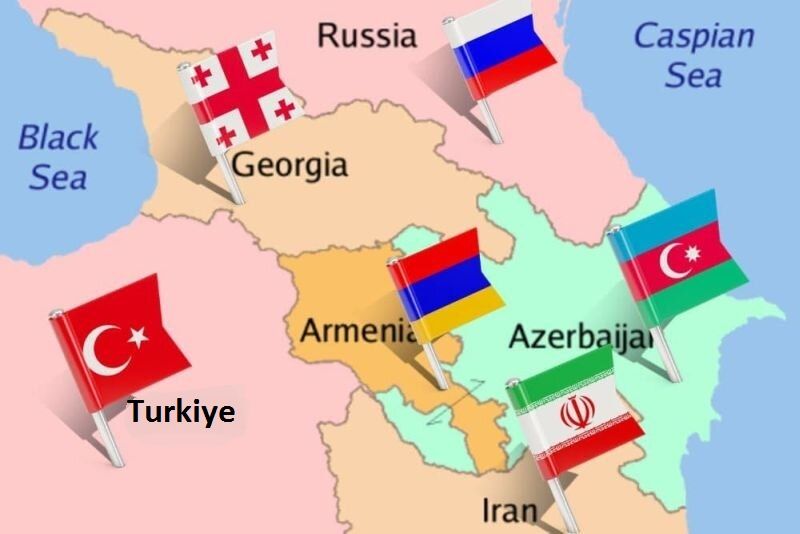3+3 format foreshadows great potential for region

The 44-day War, which ended in Azerbaijan's victory and the elimination of threats against stability in the region, paved the road for new opportunities for the development of the South Caucasus. Right after the war, Turkish President Recep Tayyip Erdogan, jointly with his Azerbaijani counterpart Ilham Aliyev, suggested a new initiative, the 3+3 format, in Baku. The format covers all countries in and outside the region, more precisely Azerbaijan, Georgia, Armenia + Turkiye, Russia, and Iran.
Note that some parts of the region are forwarding the EU markets, and other parts are interested in the Customs Union, but there is no common cooperation among the countries of the region. However, it is proven that regional cooperation and developing ties between regional markets are more effective. It should be mentioned that the 3+3 format covers a market comprising over $3 trillion dollars and over 300 million people. Besides, it stands astride important trade routes such as the Middle Corridor and the North-South Corridor.
Understanding its benefits, Russia accepted it, but Iran took a more active part in the realization of this initiative. Previously, the Iranian former Foreign Minister traveled to all member countries for the initiative to come into being. Despite all its benefits, Armenia and Georgia are reluctant to join the initiative.
Speaking to Azernews on the issue, political analyst Elkhan Shahinoglu noted that despite all its opportunities, unfortunately, there are reasons that prevent this format from working at its full potential. First of all, Georgia, one of the member states, does not want to participate in this forum, and Georgia's explanation is objective.
"Because Russia has occupied the lands of Georgia, and Georgia's diplomatic relations with Russia are at a non-existent level. Also, Georgia does not want to participate in any alliance with Russia. Another reason is the non-signing of a peace treaty between Armenia and Azerbaijan. Due to the lack of a peace agreement, this format cannot work at its full potential. Armenia should sign a peace agreement with Azerbaijan so that the Zangazur Corridor will be operational and regional projects will be able to work. That's why, of course, although I positively evaluate the talks in Tehran in the 3+3 format, I still do not expect that a high result will come out of that meeting. Because, for example, transport projects will be discussed in Tehran, but how will these transport projects be implemented at a time when Armenia is extending the opening of the Zangazur Corridor? The issue is not just the Zangazur corridor. In general, Armenia delays the resolution of issues with Azerbaijan," Elkhan Shahinoglu said.
As for the economic reasons, economist Natig Jafarli noted that the 3+3 format is a new platform. From time to time, there were various obstacles related to the holding of meetings, but in the end, both Azerbaijan and Turkiye have achieved what they aimed for. It was decided to hold such a meeting in Tehran.
"Georgia refused to participate in this meeting. There is a reason for this. The reason is that during the 30 years of the occupation policy of Armenia during the Azerbaijan-Armenian conflict, Georgia became the main highway and logistics centre of the region due to objective and subjective reasons. Therefore, Georgia now thinks that the importance of Georgia will decrease as a result of the opening of the Zangazur road through Iran and Armenia. In other words, the role played by Georgia as a logistics hub and in cargo transportation and its profit may decrease," the economist noted.
But he pointed out that Georgia should and probably will join this format in the future. Azerbaijan and Turkiye will probably need to hold a separate meeting with Georgia to convince it. This is an important issue. However, in any case, this project, which is a joint initiative of Azerbaijan and Turkiye, and this meeting, which took place in Tehran, creates very serious economic opportunities for the future of the region.
"Moreover, the expansion of economic relations inevitably creates the basis for stability and peace. Taking into account the steps Azerbaijan has taken so far and the projects implemented jointly with Turkiye, which is also the author of large projects, there are great opportunities and chances for the region to become the main logistics centre. Azerbaijan, becoming a transit hub in the future, will gain serious advantages both to obtain additional funds and to increase its geopolitical importance. This creates serious new possibilities and opportunities for all the countries in the region," Natig Jafarly added.
---
Qabil Ashirov is AzerNews’ staff journalist, follow him on Twitter: @g_Ashirov
Follow us on Twitter @AzerNewsAz
Here we are to serve you with news right now. It does not cost much, but worth your attention.
Choose to support open, independent, quality journalism and subscribe on a monthly basis.
By subscribing to our online newspaper, you can have full digital access to all news, analysis, and much more.
You can also follow AzerNEWS on Twitter @AzerNewsAz or Facebook @AzerNewsNewspaper
Thank you!

